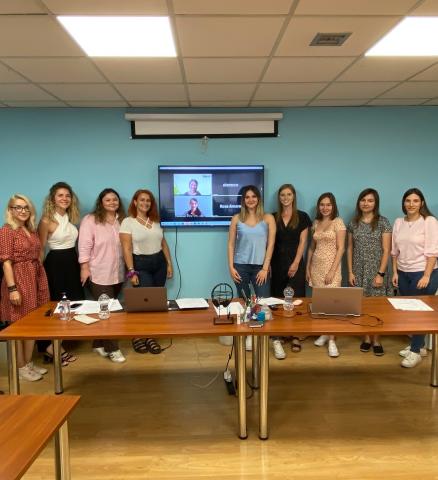BACKGROUND
Attention given to weight control has skyrocketed in recent years, ingraining words like 'BMI', 'obesity epidemic', and 'diet' into our everyday vocabulary. Since the increase of obesity prevention initiatives and campaigns, incidence of weight stigma has also increased. Although it is not socially acceptable to discriminate someone based on their weight; blaming, shaming, and ‘concern trolling’ are very common in all aspects of a person’s with excess weight life, from school to work, from their home to the doctor’s office.
Although commenting on one’s body may be ‘well-intended’, a study conducted by Puhl and Brownell (2006), showed that 79% of the study participants use food as a coping mechanism against weight-based stigma, therefore, shaming someone for their body size most likely will not lead to weight loss.
A growing number of research shows that weight stigma increases psychological distress that can contribute to poor physical health (Puhl, 2010). According to current evidence, prejudicial attitudes against people with obesity are linked to low-esteem, anxiety, poor body image, disordered eating practices, binge-eating, avoidance of physical activity, even depression (Puhl and Heuer, 2019).
Unfortunately, discrimination based on body size is prevalent in healthcare settings which leads to individuals with obesity being more reluctant to seek medical care, more likely to delay important preventative healthcare services and cancel medical appointments and showing lower rates of adherence to medication (Amy et al., 2006). At the same time, health providers report inefficient training with regards to weight bias and stigma. (Russell-Mayhew, 2016).
AIM
The project aims at designing, developing, and disseminating an innovative training framework and eventually a complete set of training material and tools about weight bias in healthcare settings as well as to make clear that treatment of obesity is more complex than the advice of “eat less-move more”. Also, the project aims to provide participants with the skills and methodological tools so they will be able to promote health without harming.
APPROACH
The project will come up with the following tangible results:
- An analysis of the weight bias impact in each of the partner countries and validation of the training needs of the target group through surveys
- Configuration of a training methodology to efficiently deliver training to health care professionals
- Development of innovative and hands-on training material and supporting tools covering a wide range of topics, tools, and strategies
- Development of a Dynamic Demonstrator tool to enhance the understanding of risks associated to weight stigma and weight bias through real life scenarios




